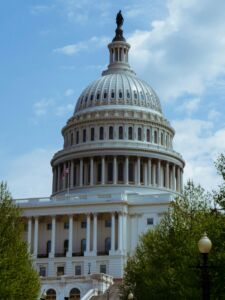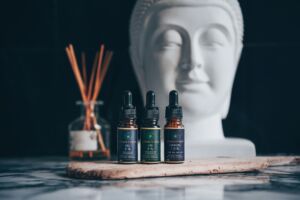A Hidden Hemp Ban Threatens Sedona’s Wellness Community
If you listen closely, you can almost hear the ghost of William Randolph Hearst drifting through the Capitol. A century ago, Hearst used his newspapers to stir fear about hemp and helped push the country into criminalizing a plant that had been used for wellness for generations. Today, Congress has revived a version of that same approach. Tucked quietly inside the budget bill that ended the shutdown is a sweeping change to federal hemp rules, and the impacts will be felt right here in Sedona and the Verde Valley.
For years, federal law allowed hemp products with less than 0.3 percent delta-9 THC. That simple definition created the foundation for the CBD marketplace we know today. Full spectrum tinctures, calming oils, topical creams, and other natural wellness products became widely available, helping people manage stress, inflammation, sleep issues, and chronic pain. Many of our local residents, visitors, seniors, and hospitality workers rely on these products not for recreation, but for relief and balance.
The new rule replaces that familiar framework with one of the strictest standards in the world. Under the law, a hemp product may not contain more than 0.4 milligrams of total THC in the entire bottle or package. Total THC now includes all forms of THC, including delta-8 and delta-10, and any cannabinoid that is chemically converted or synthesized is prohibited altogether. To put this in perspective, many standard CBD gummies contain 2.5 to 10 milligrams of THC per serving. Even full spectrum tinctures that include naturally occurring trace levels of multiple cannabinoids may no longer qualify. Early reviews of the legislation suggest that most hemp-derived products currently on the market will not meet this new threshold.

The law becomes enforceable on November 12, 2026, giving local retailers one year to review their inventory and determine what, if anything, can remain on their shelves. Arizona has already taken action against intoxicating hemp products, but non-intoxicating CBD has remained legal and widely used. The new federal rule overrides that landscape entirely. Even products that are currently permitted in Arizona may become illegal nationwide.
This matters deeply for Sedona. Wellness is not a marketing slogan here. It is part of the identity of this community. Our small businesses, healers, and wellness practitioners have built trusted relationships with customers who count on responsible, lab tested products to support their health. A federal rule that treats a carefully formulated CBD tincture from a reputable Sedona shop the same as an untested product at a gas station ignores the real differences in quality and intention.

It is reasonable to address concerns about unregulated intoxicating hemp items aimed at minors, and many states have already taken those steps. But this new federal standard is too extreme, too broad, and too disconnected from the needs of communities like ours. Natural wellness products that help residents and visitors manage their daily lives are at risk of being swept away in a policy that does not distinguish between bad actors and responsible businesses.
Over the next year, local retailers should review their Certificates of Analysis, calculate total THC per package, and seek legal guidance about compliance. Community organizations and business groups should communicate the local impact to Arizona’s congressional delegation as federal agencies begin drafting implementation guidelines.
Sedona has always stood for balance and practical solutions. As the nation reconsiders hemp policy, our community’s voice deserves to be heard. If Hearst’s ghost is still pacing the Capitol, it is time for modern leaders to remind Washington that wellness deserves thoughtful regulation, not a return to fear based decision making.
Written by David Key, President & CEO, Greater Sedona Chamber of Commerce

